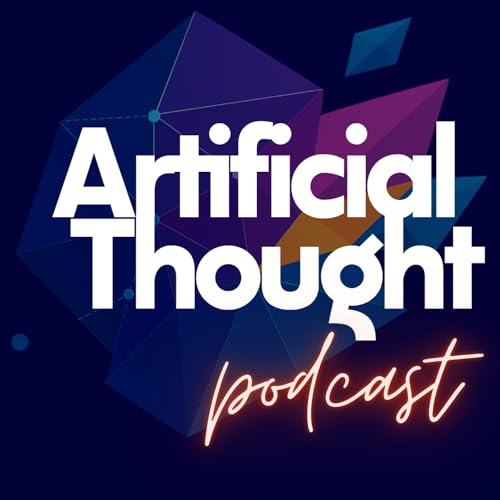This episode draws on The AI Mirror and related sources to examine a quiet but far-reaching danger: not that AI will surpass us, but that it reflects us too well. Framed as a “mirror,” AI doesn’t invent: it extracts and amplifies the values, patterns, and flaws already embedded in the data it’s trained on. What we see in its outputs may feel familiar, even insightful, but the danger is that this familiarity can distort rather than clarify.From moral deskilling to the erosion of imagination, the episode explores how over-reliance on AI mirrors risks weakening the very capacities we need to steer technology wisely. If these systems project the past into the future, how do we cultivate moral growth, creative vision, or the courage to change?The idea of AI as pathology—not because it is malicious, but because it magnifies what is already broken—runs through Shannon Vallor’s work. This episode asks what it would mean to reclaim our role as agents, not just reflectants, in a system increasingly built to automate our judgement.Source: Vallor, Shannon (2024) The AI Mirror: How to Reclaim Our Humanity in an Age of Machine ThinkingA longer companion to Ep. 5 of Artificial Thought PodcastIf we accept that AI functions as a mirror—reflecting, amplifying, and sometimes distorting—then the question shifts from what it shows to how that act of showing reshapes us. Reflection invites interpretation. It draws us into a process of response, sometimes imitation. And when systems designed to reflect patterns begin to shape how we form ideas, choose directions, or assess relevance, their influence extends beyond interpretation into the construction of thought itself.Shannon Vallor explores this process in The AI Mirror, where she traces how tools that simulate understanding can begin to affect our capacity to understand ourselves. Her concern lies in the kinds of habits these systems cultivate: ways of thinking that become less exploratory, less situated in ambiguity, and more aligned with previously recorded outcomes. These aren’t hypothetical risks—they surface in how judgement adapts to interfaces that reduce uncertainty in advance by filtering options, predicting needs, or offering guidance without prompting.That predictive smoothness can feel useful, even necessary, in complex systems but it also alters how discomfort and uncertainty are processed. In many contexts, those moments of ambiguity have served an important function. They have offered the conditions under which values are examined, choices are weighed, and dissent becomes visible. When those conditions are gradually displaced by systems that resolve uncertainty on our behalf, the practice of reflection begins to contract.This is where the idea of generative friction becomes relevant. The systems most people interact with today are not hostile to human judgement, but they often work around it. They create environments in which thinking still happens, but with less resistance and fewer invitations to pause. Over time, this shifts the locus of effort away from sense-making and toward review. When reflection is no longer required, the space in which it might occur begins to fade.Vallor refers to this process as a kind of moral deskilling—not as a sharp decline, but as a gradual change in what gets exercised and what does not. When outputs appear reliable and consistent, even without explanation, the habit of seeking deeper coherence may become less frequent. The work of identifying context, resolving conflict, or articulating reasons takes time. When that time is no longer structurally supported, the behaviours it once enabled may begin to recede.This process is often subtle. It includes what Vallor describes as reverse adaptation—where human behaviour shifts to better fit the assumptions of the tools used to shape it. These shifts can be seen in settings where system compatibility is rewarded: workplaces where efficiency metrics structure effort, classrooms where emotion is translated into performance data, interfaces that encourage alignment with predicted preferences. In each case, tools that were introduced to support decision-making begin to influence how decisions are framed.Even so, Vallor doesn’t frame these developments as inevitable. There are paths through which AI could augment rather than compress human capacities. Doing so requires a different kind of design orientation, one that foregrounds not only capability but conditions that support judgement, allow for disagreement, and sustain attention across moments of uncertainty. These are behavioural questions as much as technical or ethical ones, and they involve rethinking what environments are being optimised for, and what capacities they encourage us to develop.The podcast episode outlines Vallor’s central argument. This reflection builds on that overview by considering how friction, effort, and moral discernment are shaped by the tools we use. When patterns are ...



